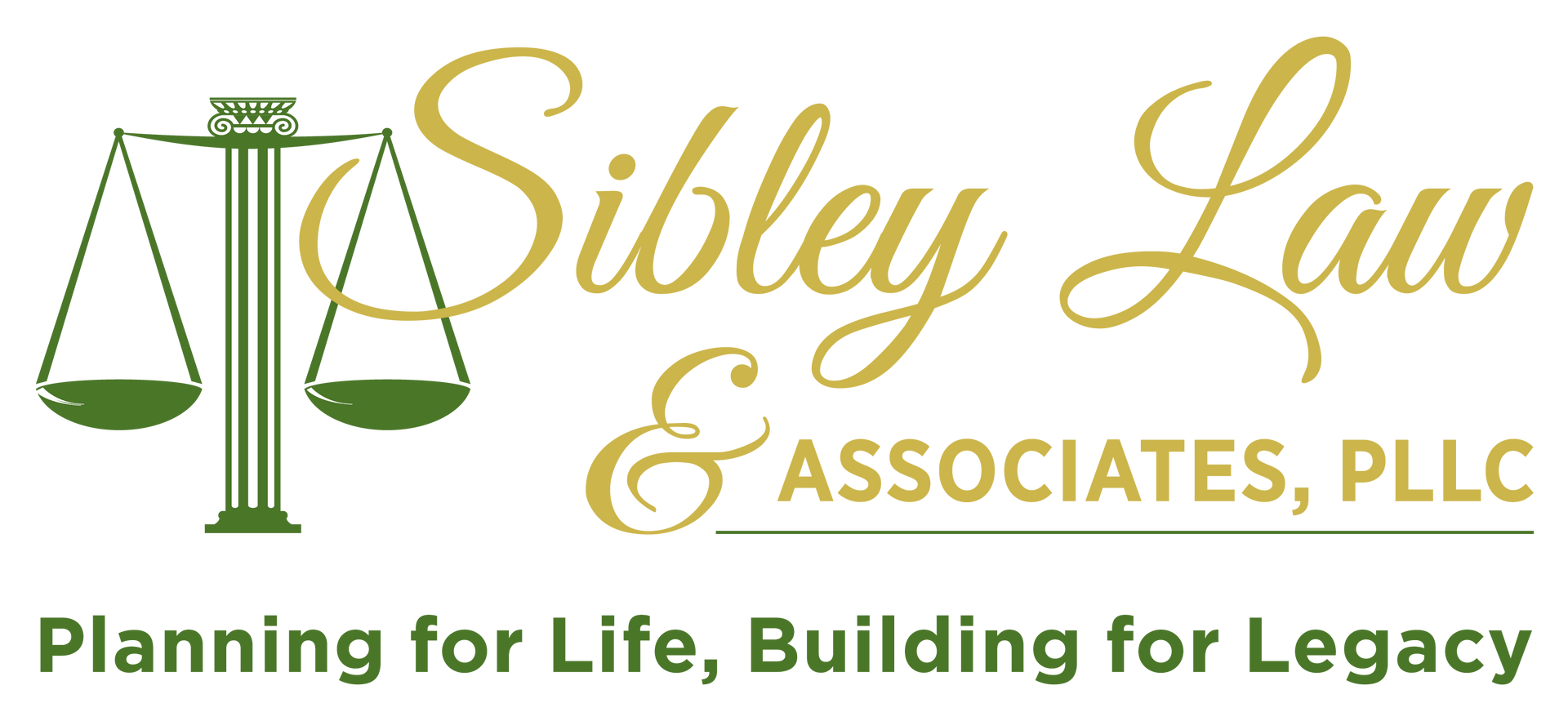How to Minimize Estate Taxes in Central Florida: Planning for Life, Building for Legacy
Losing a loved one is an emotionally challenging experience. Dealing with the legal and financial ramifications of their passing, including estate taxes, can add significant stress during an already difficult time. While no one enjoys thinking about taxes, proactive estate planning is crucial for minimizing estate tax burdens and preserving your hard-earned assets for future generations. This is especially important in Central Florida, where the cost of living and property values can significantly impact estate tax liabilities.
This blog post will explore effective strategies for minimizing estate taxes in Central Florida. We'll discuss various techniques and tools, emphasizing the importance of working with an experienced estate planning attorney like Dee Sibley, Founding Attorney of Sibley Law & Associates, PLLC, one of Central Florida's most experienced and trusted estate planning attorneys. Remember, planning for life means building for a lasting legacy.
Understanding Estate Taxes:
Before diving into minimization strategies, it's essential to understand how estate taxes work. The federal estate tax is a tax on the transfer of your assets to your beneficiaries after your death. Currently, there's a significant federal estate tax exemption, meaning only estates exceeding this threshold are subject to the tax. However, this exemption can change, and it's crucial to stay informed about current regulations. While Florida does not have a state estate tax, understanding the federal implications is vital for Central Florida residents.
Strategies for Minimizing Estate Taxes:
Several strategies can be employed to minimize or eliminate estate tax liabilities. The best approach depends on your individual circumstances, asset values, and estate planning goals. Here are some key techniques:
1. Utilizing the Unified Credit:
The unified credit, also known as the estate tax exemption, is a dollar-for-dollar reduction of your estate tax liability. As mentioned, this exemption is substantial, but it's essential to understand how it works and how to maximize its benefit. Properly structuring your estate plan ensures you fully utilize this valuable tool.
2. Gifting Strategically:
Gifting assets during your lifetime can be a powerful estate tax minimization strategy. The annual gift tax exclusion allows you to gift a certain amount each year to each recipient without incurring gift tax. These gifts are also removed from your taxable estate, reducing your potential estate tax liability. Careful planning is crucial to ensure gifts are structured correctly and don't inadvertently trigger unexpected tax consequences.
3. Creating Trusts:
Trusts are legal arrangements where you transfer assets to a trustee who manages them for the benefit of your beneficiaries. Several types of trusts can be used for estate tax planning:
- Revocable Living Trust:
This type of trust allows you to maintain control over your assets during your lifetime while avoiding probate. While a revocable living trust doesn't directly reduce estate taxes, it simplifies the estate administration process and can be used in conjunction with other tax-saving strategies.
- Irrevocable Life Insurance Trust (ILIT):
An ILIT is specifically designed to hold life insurance policies. By transferring ownership of your life insurance policy to an ILIT,
1 the death benefit is not included in your taxable estate, significantly reducing potential estate taxes. - Qualified Personal Residence Trust (QPRT): A QPRT allows you to transfer ownership of your primary residence or vacation home to a trust while continuing to live in it for a specified term. At the end of the term, the property passes to your beneficiaries, and the appreciation in value is removed from your taxable estate.
- Charitable Remainder Trust (CRT): A CRT allows you to donate assets to a charity while receiving income for a specified period. At the end of the term, the remaining assets pass to the charity. This can provide income tax benefits and reduce your taxable estate.
4. Charitable Giving:
Donating to qualified charities can be a tax-effective way to reduce your estate tax liability. Bequests to charities are deductible from your taxable estate, lowering the amount subject to estate tax. As mentioned above, Charitable Remainder Trusts are another way to make charitable gifts and gain additional estate tax and income tax benefits.
5. Business Succession Planning:
For business owners in Central Florida, succession planning is crucial. Properly planning for the transfer of your business can minimize estate taxes and ensure a smooth transition for your successors. Strategies may include gifting shares of stock, using buy-sell agreements, or establishing family limited partnerships.
6. Working with a Financial Advisor:
A qualified financial advisor can work in conjunction with your estate planning attorney to develop a comprehensive financial plan that aligns with your estate planning goals. They can provide guidance on investment strategies, retirement planning, and other financial matters that impact your estate.
The Importance of Professional Guidance:
Estate planning is a complex area of law, and the strategies mentioned above should be implemented with the guidance of an experienced estate planning attorney. Trying to navigate these complexities on your own can lead to costly mistakes and unintended consequences.
How Sibley Law & Associates, PLLC Can Help:
Attorney Dee Sibley, Founding Attorney of Sibley Law & Associates, PLLC, is one of Central Florida's most experienced and trusted estate planning attorneys. With a deep understanding of estate tax laws and extensive experience in helping Central Florida families, Attorney Sibley and her team can provide personalized legal advice tailored to your specific needs. Sibley Law & Associates, PLLC can assist you with:
- Drafting wills and trusts.
- Developing estate tax minimization strategies.
- Business succession planning.
- Probate and estate administration.
- Charitable giving planning.
Protect Your Legacy: Start Your Estate Planning Today!
Minimizing estate taxes requires careful planning and a thorough understanding of the relevant laws and regulations. By working with an experienced estate planning attorney like Dee Sibley at Sibley Law & Associates, PLLC, you can develop a comprehensive estate plan that protects your assets, minimizes tax burdens, and ensures your legacy lives on according to your wishes.
Don't wait until it's too late – start planning today.
Contact Sibley Law & Associates, PLLC, and let their expertise guide you in planning for life and building for a lasting legacy. Remember, proactive planning is the key to preserving your hard-earned wealth for future generations in beautiful Central Florida.


















